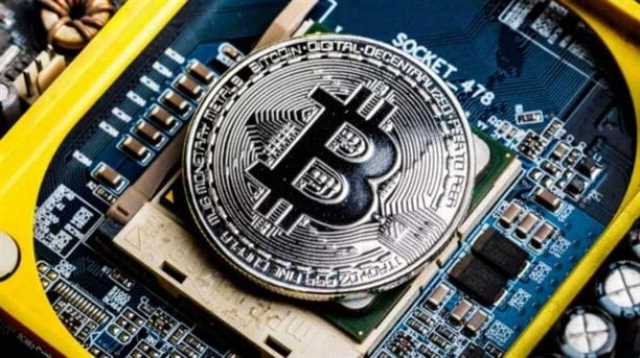The Block Size is the amount of information that is included in a bitcoin block. A Bitcoin Exchange is any service that allows you to buy and sell bitcoin for other currencies. Some exchanges are for buying and selling bitcoin with fiat currencies like USD, GBP, EUR, etc. while others may exclusively buy and sell cryptocurrencies. Bitcoin dominance is the percentage of the total cryptocurrency market cap that is attributed to Bitcoin. A Bitcoiner is one who owns bitcoin and uses it as a store of value, a medium of exchange, or a unit of account or any combination of these 3 things.

Decentralized Stablecoin

Validators lock up a certain amount of cryptocurrency, such as ether, into a ‘stake’, in order to be able to participate in consensus. If the node validates a block (group of transactions) correctly, then the validator receives a reward. PoS requires a negligible amount of computing power compared to Proof of Work consensus. A decentralized exchange is a platform for exchanging cryptocurrencies based on functionality programmed on the blockchain (i.e., in smart contracts).
Consortium Blockchain
Transactions are cryptographically secured and become legitimate as soon as they are included into the block. The process of being included into the block is called the confirmation process. Within the Bitcoin cryptocurrency, a transaction can be considered confirmed after 6 confirmations. This process was undertaken in order to avoid double-spending attack. Total Value Locked, or TVL, is a common expression used in many contexts across the crypto ecosystem, so it’s important to pay attention to the specifics. In general, it refers to how much value, in tokens, has been deposited into something.Most often, it refers to a protocol, which is an application on the blockchain, or a set of protocols.
Think Long Term (TLT)
A type of cyber-attack in which the perpetrator continuously overwhelms the system with requests in order to prevent service of legitimate requests. A digital commodity that is scarce, electronically transferable, and intangible with a market value. The transfer of authority and responsibility from a centralized organization, government, or party to a distributed network. A blanket term used to refer to ensuring crypto projects conform with applicable regulations and laws. Bytecode is a “low-level” computer language, that is, meant to be processed by a computer, rather than a “high-level”, more human-readable, language. In Ethereum, higher-level Solidity is compiled into Ethereum bytecode, which is read by the Ethereum Virtual Machine (EVM).
Blockchain Transmission Protocol (BTP)
A Bitcoin Miner is anyone who operates a computer to compete to find the next bitcoin block. Whoever finds the next bitcoin block is Bitcoin Vocabulary rewarded with newly minted bitcoins. Anyone in the world is able to become a bitcoin miner however it is incredibly competitive.
- The EIP process is a public and open process through which suggestions are made as to how to change (and hopefully, improve) the way the Ethereum network functions as a whole; the official repository is here.
- Block reward refers to the new bitcoins given to miners for validating a new block on the blockchain.
- Outstanding transactions get bundled into a block and are verified roughly every ten minutes on average.
- The current ATH took place back in December of 2017 with a price of approximately $18,600 USD per bitcoin.
- Many cryptocurrencies have a finite supply, which makes them a scarce digital commodity.
- Dominant consensus mechanisms are Proof of Work (PoW) and Proof of Stake (PoS).
Low priority transactions will not get included by a miner if the limited space is already filled by higher priority transactions. A seed phrase is a list of common English words that contain all of the information required to restore a bitcoin wallet if it is lost, stolen, or compromised. With these 12 – 24 words, anyone can access all of the bitcoin in the corresponding wallet. Replace By Fee, RBF for short, is a fee bumping method where the owner of any of the inputs can increase the transaction fee after the transaction has been broadcast in an attempt to be added to the blockchain sooner. An orphan block, also known as a stale block, is a valid block that is mined at almost the exact same time as another valid block which causes a short term split in the blockchain. Only one of the 2 chains will be built upon and the other will be dropped or “orphaned” and reverted back to the MemPool to await confirmation.
Digital Currency

A bag holder is someone holding a large quantity of a given cryptocurrency that has been purchased as a part of an investor’s portfolio that has not been sold. Bit is a common unit used to designate a sub-unit of a bitcoin – 1,000,000 bits is equal to 1 bitcoin (BTC). It is the only information you need to provide for someone to pay you with Bitcoin. An important difference, however, is that each address should only be used for a single transaction.
A transaction that passes Bitcoin Core’s IsStandard() and IsStandardTx() tests. Only standard transactions are mined or broadcast by peers running the default Bitcoin Core software. Signature hash type which only signs the inputs, allowing anyone to change the outputs however they’d like. Complete transactions in their binary format; often represented using hexadecimal. Sometimes called raw format because of the various Bitcoin Core commands with “raw” in their names. The target is the threshold below which a block header hash must be in order for the block to be valid, and nBits is the encoded form of the target threshold as it appears in the block header.
Liquidity Provider Tokens (LP Tokens)
A Bitcoin wallet is loosely the equivalent of a physical wallet on the Bitcoin network. The wallet actually contains your private key(s) which allow you to spend the bitcoins allocated to it in the block chain. Each Bitcoin wallet can show you the total balance of all bitcoins it controls and lets you pay a specific amount to a specific person, just like a real wallet. This is different to credit cards where you are charged by the merchant. A cryptographic signature is a mathematical mechanism that allows someone to prove ownership. In the case of Bitcoin, a Bitcoin wallet and its private key(s) are linked by some mathematical magic.
